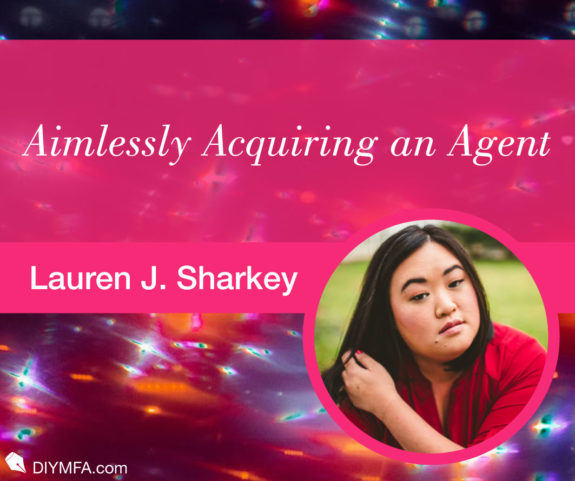Dear Lauren, I am an aspiring writer who hopes to publish traditionally. After getting my MFA, I worked on my memoir as much as I could and began the journey of trying to secure an agent. I queried literary agents—big and small—and wanted to hit 100 rejections before revisiting my memoir and rethinking my approach. I got really close with one agent who requested a copy of my manuscript, but then rejected it due to the saturation of the memoir market. After shelving it for a few months, I finally feel read to get back out there and start querying agents. What advice do you have for this writer looking to get back on the horse?
Sincerely,
Aimlessly Acquiring An Agent
Dear Aimlessly,
Yours is a loaded question, with an even more loaded answer. Before I get to that, though, something I always encourage writers to do is define what success means and looks like to them. It’s important to revisit this question often, in all stages of the writing process, and brings me to the first part of my multi-layered answer to your question:
Paths to Publishing
Now, more than ever, there are so many different ways to publish. So, to answer your question with another question: why traditional publishing?
Traditionally, I consider traditional publishing to be publishing with one of the Big Five (Penguin/Random House, Hachette, Harper Collins, Simon and Schuster, and Macmillan). If you are looking to submit to any of these houses, chances are yes, you will need an agent.
However, the imprints of these houses may open submissions for unrepresented authors periodically throughout the year (but don’t quote me on that).
At the same time, there are also a number of independent and hybrid presses, along with self-publishing options, that don’t require you to have an agent in order to submit your manuscript for consideration.
So, I’d ask you to consider why you believe traditional publishing is the right path for you, but more than that, if traditional publishing is truly where your book belongs.
Great Expectations
There’s a common misconception that once an author signs with an agent, their life becomes infinitely easier: their book gets purchased for a boatload of money, eventually topping the bestseller list before being optioned for a multi-film deal. The truth is, an agent isn’t a guarantee of publication. When it comes to books, there are no guarantees.
There are benefits of having an agent—someone to advocate on your behalf and to share the heavy lifting (and the misery of rejection) with. At the end of the day, though, an agent isn’t a one-way ticket to publication.
It’s a Numbers Game
Getting rejected is part of the deal when it comes to writing. I’m not a believer in word or page counts, and I don’t subscribe to the idea of X number of rejections equalling a particular badge of honor.
That being said, a hundred rejections almost tells you the same thing as fifty—something isn’t working or resonating.
Ask yourself if your query is clear, if your characters, and their motivations, are coming through.
Another thing—and this is important—is to consider where you’re querying and WHY. When I was starting out, I submitted my work everywhere that was accepting submissions. It wasn’t until I got an email from an editor with a simple question, “Why do you think this piece is a good fit for us?” A quick scan of their website told me they already knew the answer: it wasn’t.
Make sure you’re querying with purpose.
Good luck, and keep writing!
What other questions do you have about getting an agent, writing a novel, or getting published? Drop them here and Lauren might answer them in a future column!

Lauren J. Sharkey is a writer, teacher, and transracial adoptee. Inconvenient Daughter is her debut novel, and loosely based on her experience as a Korean adoptee. You can follow her at ljsharks.com, and on Facebook, Instagram, and Twitter.







